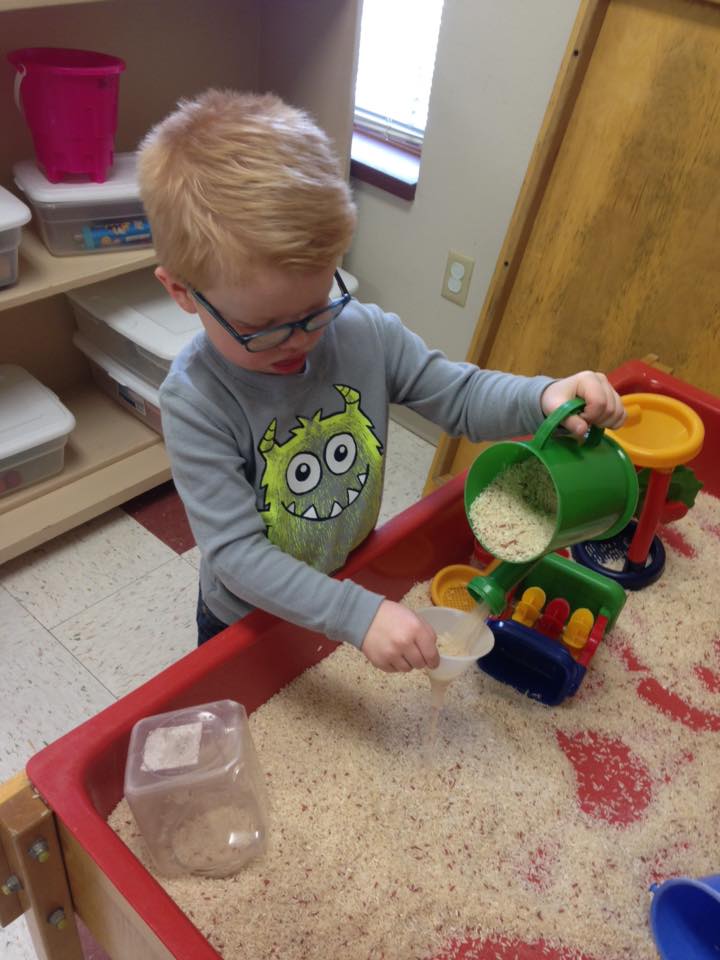Understanding the World of Childcare: An Overview
Opening a daycare can be a rewarding and challenging venture, providing a valuable service to families in need of quality childcare. With the demand for childcare services on the rise, entrepreneurs are increasingly considering how to open up their own daycare. However, it’s essential to understand the complexities of the childcare industry before embarking on this journey.
The benefits of starting a daycare business are numerous. For one, it offers flexibility, allowing owners to create a schedule that suits their needs. Additionally, it provides personal fulfillment, as owners have the opportunity to make a positive impact on the lives of children and families. Financial rewards are also a significant advantage, as a well-run daycare can generate substantial revenue.
Moreover, the childcare industry is constantly evolving, with new research and technologies emerging to improve the quality of care. By staying up-to-date with the latest developments, daycare owners can provide innovative and engaging programs that cater to the diverse needs of children. This not only enhances the overall experience for children but also sets the daycare apart from competitors.
However, it’s crucial to acknowledge the challenges associated with opening a daycare. Regulatory requirements, staffing, and marketing are just a few of the hurdles that owners must overcome. Nevertheless, with careful planning, research, and dedication, it’s possible to create a thriving and reputable daycare that provides exceptional care and education to children.
For those considering how to open up their own daycare, it’s essential to begin by researching the industry and understanding the local market. This involves analyzing the competition, identifying gaps in services, and determining the demand for childcare in the area. By doing so, entrepreneurs can create a solid foundation for their business and set themselves up for success.
Ultimately, opening a daycare requires a passion for working with children, a commitment to providing quality care, and a willingness to navigate the complexities of the industry. By understanding the world of childcare and staying focused on the needs of children and families, entrepreneurs can build a successful and sustainable business that makes a lasting impact.
Researching and Planning: Laying the Foundation
Before embarking on the journey of how to open up your own daycare, it’s essential to conduct thorough research and planning. This involves understanding the local regulations, licensing requirements, and market demand for childcare services in your area. By doing so, you can create a solid foundation for your business and ensure compliance with regulatory requirements.
Start by researching the childcare industry, including the types of services offered, target markets, and competitors. This will help you identify gaps in services and determine the demand for childcare in your area. You can use online resources, such as the National Association for the Education of Young Children (NAEYC) and the National Childcare Association (NCA), to gather information on industry trends and best practices.
Next, create a business plan that outlines your goals, target markets, and financial projections. This should include a detailed description of your daycare’s mission, philosophy, and services, as well as a market analysis and financial plan. Your business plan should also outline your staffing needs, including the number of teachers, assistants, and administrators required to operate your daycare.
When creating your business plan, consider the following key elements:
- Mission statement: Define your daycare’s purpose and goals.
- Market analysis: Identify your target market and assess the demand for childcare services.
- Services: Describe the types of services you will offer, including childcare programs, activities, and amenities.
- Staffing: Outline your staffing needs, including the number of teachers, assistants, and administrators.
- Financial plan: Establish financial projections, including startup costs, revenue, and expenses.
By conducting thorough research and planning, you can create a comprehensive business plan that will guide your daycare’s development and ensure its success. Remember to regularly review and update your business plan to reflect changes in the market and industry.
In addition to creating a business plan, it’s essential to understand the local regulations and licensing requirements for childcare providers in your area. This includes obtaining necessary licenses and certifications, such as the Child Development Associate (CDA) credential and the National Childcare Accreditation (NCA) certification.
By following these steps, you can lay the foundation for a successful daycare business and ensure compliance with regulatory requirements. Remember to stay focused on providing high-quality childcare services and continuously evaluate and improve your business to achieve long-term success.
Obtaining Licenses and Certifications: Meeting Regulatory Requirements
When learning how to open up your own daycare, it’s essential to understand the importance of obtaining necessary licenses and certifications. These credentials not only demonstrate your commitment to providing high-quality childcare services but also ensure compliance with regulatory requirements.
The first step in obtaining licenses and certifications is to research the specific requirements for your state and local area. This may include obtaining a state license, local permits, and certifications such as the Child Development Associate (CDA) credential or the National Childcare Accreditation (NCA) certification.
State licenses typically require daycare providers to meet specific standards for health, safety, and education. These standards may include requirements for staff qualifications, child-to-staff ratios, and facility safety. To obtain a state license, you’ll need to submit an application, pay a fee, and undergo an inspection of your facility.
In addition to state licenses, you may also need to obtain local permits and certifications. These may include permits for zoning, health, and safety, as well as certifications for first aid and CPR training.
Health and safety certifications are also essential for daycare providers. These certifications demonstrate your commitment to providing a safe and healthy environment for children. Some common health and safety certifications include:
- First aid and CPR training
- Food safety certification
- Medication administration training
First aid and CPR training is essential for daycare providers, as it ensures that staff are equipped to respond to emergencies. Food safety certification is also important, as it ensures that staff are trained to handle and prepare food safely. Medication administration training is also necessary, as it ensures that staff are equipped to administer medications safely and effectively.
Once you’ve obtained the necessary licenses and certifications, it’s essential to maintain compliance with regulatory requirements. This includes ongoing training and professional development for staff, as well as regular inspections and monitoring of your facility.
By obtaining the necessary licenses and certifications, you can demonstrate your commitment to providing high-quality childcare services and ensure compliance with regulatory requirements. This is an essential step in learning how to open up your own daycare and establishing a successful and reputable business.
Designing a Safe and Nurturing Environment: Creating a Welcoming Space
When learning how to open up your own daycare, designing a safe and nurturing environment is crucial for providing high-quality childcare services. A well-designed space can promote learning, play, and development, while also ensuring the health and safety of children.
The first step in designing a safe and nurturing environment is to create a layout that promotes learning and play. This can include designing separate areas for different activities, such as a reading nook, art station, and play area. It’s also essential to consider the age and needs of the children, as well as the staff-to-child ratio, when designing the layout.
Selecting age-appropriate materials and equipment is also vital for creating a safe and nurturing environment. This can include choosing furniture and toys that are durable, easy to clean, and suitable for the age group. Additionally, ensuring that the environment is free from hazards, such as sharp objects and toxic substances, is essential for maintaining a safe space.
Ensuring health and safety standards are met is also crucial for creating a safe and nurturing environment. This can include implementing policies and procedures for infection control, first aid, and emergency response. Regular cleaning and disinfection of the environment, as well as proper handwashing and hygiene practices, are also essential for maintaining a healthy environment.
Some innovative and creative concepts to consider when designing a safe and nurturing environment include:
- Creating a nature-based play area, such as a garden or outdoor play space, to promote exploration and learning.
- Designing a sensory-friendly environment, such as a sensory room or calm-down area, to support children with sensory needs.
- Implementing a flexible and adaptable layout, such as a modular design, to accommodate different activities and age groups.
By designing a safe and nurturing environment, you can create a welcoming space that promotes learning, play, and development, while also ensuring the health and safety of children. This is an essential step in learning how to open up your own daycare and providing high-quality childcare services.
When designing the environment, it’s also essential to consider the needs of staff and families. This can include providing a comfortable and welcoming space for staff to work, as well as amenities such as a parent lounge or family resource center. By creating a space that supports the needs of all stakeholders, you can build a positive and supportive community that promotes the well-being of children and families.
Building a Team: Hiring Qualified Staff
When learning how to open up your own daycare, building a team of qualified staff is crucial for providing high-quality childcare services. A well-trained and experienced staff can make a significant difference in the success of your daycare business.
The first step in building a team is to identify the types of staff you need to hire, including teachers, assistants, and administrators. Consider the age and needs of the children, as well as the staff-to-child ratio, when determining the number of staff to hire.
Recruiting qualified staff can be a challenging task, but there are several strategies you can use to attract top talent. Consider advertising job openings on social media, job boards, and local newspapers. You can also reach out to local colleges and universities with early childhood education programs to find qualified candidates.
Once you have identified potential candidates, it’s essential to conduct thorough interviews to assess their qualifications and experience. Consider asking behavioral-based questions, such as “Can you describe a time when you had to handle a difficult situation with a child?” or “How would you approach a child who is struggling with a particular activity?”
Training and development are also critical components of building a team. Consider providing ongoing training and professional development opportunities to help staff improve their skills and knowledge. This can include workshops, conferences, and online courses.
Maintaining staff retention and development is also essential for building a successful daycare business. Consider offering competitive salaries and benefits, as well as opportunities for advancement and professional growth.
Some innovative and creative concepts to consider when building a team include:
- Implementing a mentorship program, where experienced staff can mentor new hires and provide guidance and support.
- Creating a staff recognition and reward program, where staff can be recognized and rewarded for their hard work and dedication.
- Providing opportunities for staff to participate in professional development and continuing education, such as workshops and conferences.
By building a team of qualified and dedicated staff, you can provide high-quality childcare services and establish a successful daycare business. This is an essential step in learning how to open up your own daycare and achieving long-term success.
Developing a Curriculum: Creating Engaging Programs
When learning how to open up your own daycare, developing a curriculum that meets the needs of children is crucial for providing high-quality childcare services. A well-designed curriculum can promote learning, development, and engagement, while also ensuring that children are prepared for future academic success.
The first step in developing a curriculum is to identify the age and needs of the children. Consider the developmental stages of children, including cognitive, social, emotional, and physical development. This will help you create a curriculum that is tailored to the needs of your students.
Creating a daily schedule is also essential for developing a curriculum. Consider creating a schedule that includes a balance of structured and unstructured activities, including learning centers, group activities, and outdoor play. This will help children stay engaged and focused throughout the day.
Planning activities is also a critical component of developing a curriculum. Consider creating activities that promote learning and development, including art projects, music and movement, and sensory play. This will help children develop their cognitive, social, and emotional skills.
Assessing child progress is also essential for developing a curriculum. Consider using assessment tools, such as observation, evaluation, and testing, to measure child progress and identify areas for improvement. This will help you make informed decisions about your curriculum and ensure that children are meeting their developmental milestones.
Some innovative and creative concepts to consider when developing a curriculum include:
- Implementing a project-based learning approach, where children work on long-term projects that promote learning and development.
- Creating a STEM-based curriculum, where children learn about science, technology, engineering, and math through hands-on activities.
- Developing a social-emotional learning program, where children learn about self-awareness, self-regulation, and relationships.
By developing a curriculum that meets the needs of children, you can provide high-quality childcare services and establish a successful daycare business. This is an essential step in learning how to open up your own daycare and achieving long-term success.
Remember to continuously evaluate and improve your curriculum to ensure that it remains relevant and effective. This can include seeking feedback from parents, staff, and children, as well as staying up-to-date with the latest research and best practices in early childhood education.
Marketing and Advertising: Attracting Families
When learning how to open up your own daycare, marketing and advertising are crucial for attracting families and establishing a successful business. A well-designed marketing strategy can help you reach your target audience, build your brand, and differentiate your daycare from competitors.
The first step in marketing and advertising your daycare is to create a website. A website provides a professional online presence and allows families to learn more about your daycare, including your mission, philosophy, and services. Consider including features such as a photo gallery, staff profiles, and a contact form to make it easy for families to get in touch with you.
Creating a social media presence is also essential for marketing and advertising your daycare. Consider creating profiles on platforms such as Facebook, Instagram, and Twitter, and posting regular updates about your daycare, including news, events, and activities. This will help you build a community of followers and engage with families in a more personal way.
Developing marketing materials is also important for promoting your daycare. Consider creating brochures, flyers, and business cards that showcase your daycare’s services and features. You can also use these materials to network with local families, pediatricians, and other childcare providers.
Networking is a key component of marketing and advertising your daycare. Consider attending local events, such as parenting conferences and childcare fairs, to connect with families and promote your daycare. You can also partner with local businesses, such as pediatrician offices and children’s stores, to reach a wider audience.
Some innovative and creative concepts to consider when marketing and advertising your daycare include:
- Creating a referral program, where current families can refer friends and family in exchange for discounts or incentives.
- Developing a loyalty program, where families can earn points or rewards for their loyalty and commitment to your daycare.
- Hosting events and activities, such as open houses and parent-teacher conferences, to engage with families and build a sense of community.
By marketing and advertising your daycare effectively, you can attract families and establish a successful business. This is an essential step in learning how to open up your own daycare and achieving long-term success.
Remember to continuously evaluate and improve your marketing strategy to ensure that it remains effective and relevant. This can include seeking feedback from families, monitoring your website analytics, and staying up-to-date with the latest marketing trends and best practices.
Launching and Growing: Overcoming Challenges and Achieving Success
Launching a successful daycare business requires careful planning, execution, and ongoing evaluation. Once the daycare is operational, it’s essential to continuously assess and improve services to maintain quality and attract new families. One of the primary challenges daycare owners face is managing the delicate balance between providing high-quality care and maintaining a profitable business. To overcome this challenge, it’s crucial to establish a robust financial management system, monitor expenses, and adjust pricing strategies as needed.
Another significant challenge daycare owners encounter is staffing. Hiring and retaining qualified staff is vital to providing exceptional care. To address this challenge, daycare owners can focus on creating a positive work environment, offering competitive salaries and benefits, and providing ongoing training and development opportunities. By investing in staff, daycare owners can reduce turnover rates, improve morale, and enhance the overall quality of care.
In addition to managing finances and staffing, daycare owners must also navigate the complexities of marketing and advertising. To attract new families and maintain a competitive edge, daycare owners can leverage social media, online directories, and local networking events. By developing a strong online presence and building relationships with local families, pediatricians, and other childcare providers, daycare owners can increase visibility, drive enrollment, and achieve long-term success.
As the daycare business grows, it’s essential to maintain a focus on quality and continuously evaluate services. This can be achieved by conducting regular assessments, gathering feedback from families, and making data-driven decisions. By prioritizing quality and ongoing improvement, daycare owners can establish a reputation for excellence, attract new families, and achieve long-term success.
For those looking to open up their own daycare, it’s essential to remember that launching and growing a successful business takes time, effort, and dedication. By overcoming common challenges, maintaining quality services, and continuously evaluating and improving the business, daycare owners can achieve success and provide high-quality care to children and families.
Ultimately, the key to launching and growing a successful daycare business is to remain flexible, adaptable, and committed to providing exceptional care. By prioritizing quality, investing in staff, and continuously evaluating services, daycare owners can overcome challenges, achieve success, and make a lasting impact on the lives of children and families.




